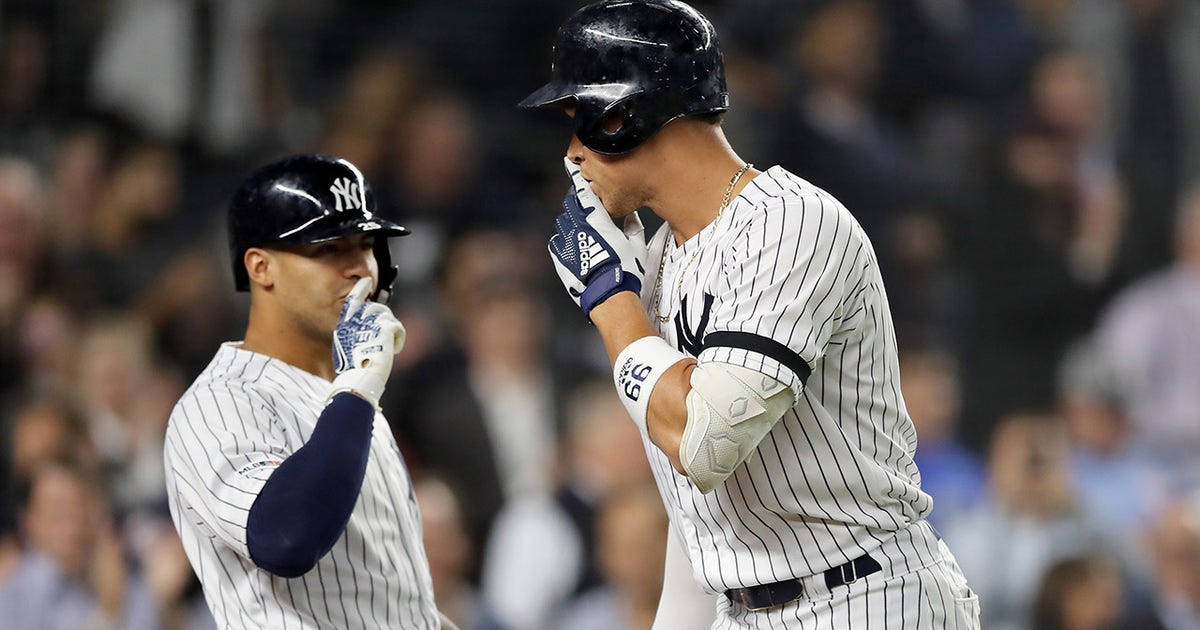MLB’s historic 2019 season illustrates baseball’s great divide


It can be lonely at the top in sports — and, if we are being honest, probably even lonelier at the bottom. Yet as Major League Baseball’s final week of the regular season serves as a reminder that fall is upon us (no matter what the thermometer says), the league’s best and worst teams have no shortage of company.
In a season that is shattering records (and pitchers’ souls) with an astounding volume of home run carnage, there are also some crazy numbers being racked up in the win and loss columns of both the American and National Leagues.
For only the second time in history, there are four teams that have been bad enough to see triple digits next to their name in the loss column. It surely isn’t fun to be on the receiving end of that many hidings, but for the Detroit Tigers, Baltimore Orioles, Kansas City Royals, and Miami Marlins there might be a shred of solace that they’re not alone in their misery. Failing that, then maybe the struggles of others will draw attention away from their own futility.
On the flip side, we are in the midst of unprecedented MLB excellence. If the 98-60 Minnesota Twins manage to split their final four games, this might be the first time in history that a season ends with four different 100-win teams. Not only that: while the New York Yankees, Houston Astros and Los Angeles Dodgers have already surged past the magical (or at least it used to be magical) century mark, we could even be looking at five postseason teams boasting triple digits — three straight wins to close out the Atlanta Braves’ schedule would get them to 100.
With the best teams getting better and the worst teams getting worse, is it possible that we’re looking at a new, permanent dichotomy in baseball?
New franchise record ?#TakeItBack pic.twitter.com/EYt4CjQJSa
— Houston Astros (@astros) September 26, 2019
ESPN’s outstanding MLB insider Jeff Passan, a man professional enough to talk to FOX Sports Insider even while suffering through an eye injury, offers a note of caution.
“In baseball, there is always an instinct to think that what is happening in that particular year is going to lead to a trend in that direction,” Passan told me in a telephone conversation. “Whether it has been the haves and have nots, or the home runs spiking significantly. But I don’t want to get completely caught up in that, because the game tends to balance itself out.”
As recently as 2014, it seemed like 100-win teams were a thing of the past. This will be the third straight season boasting at least a trio of hundred-toppers, but prior to 2017 a 100-win triumvirate had only happened five times: in 1942, 1977, 1998, 2002 and 2003.
The only other season with four 100-loss teams was 2002, which is also the only season before 2019 that saw at least three teams both winning and losing 100.
According to Passan, how things play out next will be influenced by the view from MLB’s corridors of power. If commissioner Rob Manfred and his colleagues believe the game can self-regulate, then they’ll likely leave well enough alone. Yet there will be temptation to take anti-tanking measures and make sure the bottom-feeders are incentivized to compete. Alterations to the ball to once again quiet the home run explosion are also highly possible.
“The incentive will come from the economics, that’s always what has driven baseball,” Passan added. “The economics are still pretty good, but when you look at the attendance … they’ll be down about a million fans this year, coming off a year when they lost (another) three million. There has to come a point where the sport asks itself if this is really the best direction.”
Teams losing as a means to get better later is a problem for the short-term bottom line. Having big teams that win a lot is far less of an issue and that part of it won’t worry the MLB executives too much. It’s also notable that both the New York Yankees and Los Angeles Dodgers have grown their current rosters in a seemingly sustainable fashion.
The @Twins were being overlooked to start the season with just a 3.7% chance to win the division.
Everyone’s looking at them now as AL Central champs. #CLINCHED pic.twitter.com/PtYRUUlk2Y
— MLB Stats (@MLBStats) September 26, 2019
The Yankees will always have a fiscal advantage, yet much of their recent success has come by being judicious. The pinstripes have found great value from mid-level free agent signings such as DJ LaMahieu and Adam Ottavino, and aside from Giancarlo Stanton’s monster contract, have been reluctant to really break the bank of late.
The Dodgers have been similarly practical since Andrew Friedman’s arrival as president of baseball operations, with a focus on making the franchise baseball’s greatest player-producing machine.
As for the Astros (the poster boys for the tank era), things have now changed. “As much credit as has been given for tanking and turning things around, they are in phase two now,” Passan said. “The tank is kind of old news. This is a team that has gone out and traded for Justin Verlander, Gerrit Cole and Zack Greinke in consecutive years. That shows a desire to try to win — something that has been noticeably absent in baseball this year. They are not afraid to say that want to win a championship.”
The Twins have reimagined themselves, using extraordinary long-ball power to turbo-charge their season. Minnesota toppled the MLB single-season team home run record … and did so by the end of August. They have been helped by playing in the AL Central, which means plenty of games against the miserable Royals and Tigers, but 100 wins, or even something close to it, is not to be downplayed, no matter the division.
And finally we have the Braves, whose bid for 100 would fall short with just one more defeat, but whose resurgence may be the most surprising story of the lot. In a stacked division, without elite starting pitching, Atlanta has found a way to grind out wins time and time again, and should not be discounted in the postseason.
Baseball, probably more than any other sport, is fascinated with numbers — particularly large ones. “100 is just a nice, neat, round number,” Passan said. If the Braves end up with 99 wins and “only” four teams cross the 100 barrier, the change will feel a little less seismic, but make no mistake: this was an historic season for baseball.
Heading into the postseason with a swell of teams coming off excellent campaigns is absolutely a positive. But MLB does have some decisions to make in the near future. For the time being, at least, there is a parity issue — and it is glaring.
NL WEST CHAMPS? YOU ALREADY KNOW.
The Dodgers are the NL West Champs for the seventh consecutive year! #LABleedsBlue pic.twitter.com/WjT4EKoBYQ
— Los Angeles Dodgers (@Dodgers) September 11, 2019









